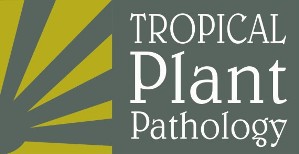Harpin is a protein produced by Erwinia amylovora that is involved in its pathogenesis of apple. We studied cellular correlates of harpin-induced resistance in apple fruit to blue mold caused by Penicillium expansum using Light (LM), scanning (SEM) and transmission (TEM) electron microscopy. SEM study of wound surfaces showed the fungus colonizing the wounds within 48 h, and profuse colonization of the wound and penetration of the tissue occurred within 72 h after inoculation of control samples. In harpin-treated samples, spore germination and wound colonization were not evident until 96 h. LM showed that intramural mycelial growth appeared as early as 72 h, and intense tissue colonization occurred by 96 h after inoculation in the control samples. In the harpin-treated fruit, spore germination and wound colonization occurred only by 144 h in the treated specimens. Numerous putative tannin vacuoles and appositions were observed in the epidermal and hypodermal cells of inoculated harpin-treated samples, but only a few appeared in control samples. TEM showed that intramural growth of the fungus occurred frequently in the controls. In harpin-treated specimens, wall depositions and appositions occurred very frequently. The results suggest that harpin may trigger or intensify cellular responses in harpin-treated apples.
Penicillium expansum; Malus domestica; Red Delicious; alternative control









